Non-Crazy Questions (II)
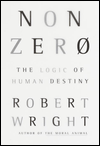 Robert Wright's 2000 book Nonzero: The Logic of Human Destiny is the subject of this ongoing series of posts. In Non-Crazy Questions (I) I reviewed the author's contention that a preference for "non-zero-sum games" gives biological and cultural evolution, over the long haul, a surprising directionality. Natural selection moves biological evolution toward life forms of ever-increasing complexity and, eventually, ones that are both intelligent and conscious. A smart species — us — develops the first culture. Culture then proceeds to evolve toward, you guessed it, increasing social, economic, and technological complexity and perhaps even the establishment on earth of a "superorganism" with humanity, globally interconnected via the Internet, forming its "superbrain."
Robert Wright's 2000 book Nonzero: The Logic of Human Destiny is the subject of this ongoing series of posts. In Non-Crazy Questions (I) I reviewed the author's contention that a preference for "non-zero-sum games" gives biological and cultural evolution, over the long haul, a surprising directionality. Natural selection moves biological evolution toward life forms of ever-increasing complexity and, eventually, ones that are both intelligent and conscious. A smart species — us — develops the first culture. Culture then proceeds to evolve toward, you guessed it, increasing social, economic, and technological complexity and perhaps even the establishment on earth of a "superorganism" with humanity, globally interconnected via the Internet, forming its "superbrain."Natural selection, a variant of which guides cultural evolution too, may even be teleological, says Wright. A process, not a being with a body, natural selection nonetheless is able to respond to information about the environment in such a way as to add flexibility to its directionality. When the environment changes, so do the specific strategies employed by natural selection in order to bring about the increasingly complex life forms it "seeks."
As a result, according to Wright, we are justified in saying that the evolutionary "tree of life" on our planet manifests design. The natural selection process itself is the designer of this elaborately branching "family tree" of life on earth — and Darwinian natural selection can therefore be said to manifest an intrinsic purpose.
Those things alone, however controversial many Darwinists may find them to be in their own right, don't necessarily imply that there's a God, in Wright's view. But in his final chapter Wright does make a case, based on evolutionary evidence, for God's existence. I happen to think it's quite an elegant argument — more so than anything offered by Intelligent Design proponents Michael Behe and William Dembski. Even so, some of its points are not without their problems, which I'll discuss shortly.
At the risk of grossly oversimplifying, here's Wright's argument in a nutshell:
We humans are, like all other animals, products of Darwinian evolution by natural selection. But we're also conscious. We possess sentience, a.k.a. subjectivity or what I'd prefer to call "inner experience." And, says Wright, there's no way to explain this fact by recourse to natural selection alone.
Why not? Because consciousness is superfluous to anything natural selection can "see." It's redundant. In the jargon of philosophers, it's epiphenomenal. Per Wright, it doesn't actually do anything. So there's no way it can possibly make us "fitter" from a Darwinian point of view. We could just as well have evolved as quite clever zombies with no inner experience whatever, as "robots with unusually good skin" (pp. 320-1).
I'm going to come back later to this point of the superfluity of our inner, subjective consciousness of experience because it's so hard to grasp, so crucial to Wright's case, and so apt to be controversial. But first I want to lay out the rest of Wright's argument.
Wright shows that our life's meaning, and in particular its moral meaning, would be entirely absent if we had evolved as robotic zombies with no "potential for fulfillment" (p. 321). If we were "as devoid of feeling as a computer," there would be nothing immoral about "unplugging [us] for good." The commandment "thou shalt not kill," I might add, would be null and void. Nor would any injunction against stealing — taking a printer or disk drive away from a computer, say — make sense.
So we have this characteristic — our conscious inner experience — which supposedly makes no difference at all to natural selection, since robotic zombies who outwardly resemble us would be just as "fit" as we. But it is this sentience of ours that gives life its moral meaning. And, per Wright, we very likely need to assume there's a God in order to account for it.
Wright quotes the philosopher David Chalmers on this point (p. 321): "It seems God could have created the world physically exactly like this one, atom for atom, but with no consciousness [inner experience] at all. And it would have worked just as well. But our universe isn't like that. Our universe has consciousness."
And it accordingly has a moral dimension.
So it may well have a God.
Now I'd like to discuss at some length the "epiphenomenalist" notion of consciousness or sentience which is so crucial to Wright's argument. I take as my text Wright's section titled "Could a Giant Global Brain Become Conscious?" (pp. 306-309).
First of all, in the paragraphs leading up to that section (p. 305) Wright explains that consciousness or sentience is not just the ability to process information in rich and productive ways. Rather, it is "the subjective experience of processing information," which I take to mean something like thinking and simultaneously thinking about thinking, pondering our own mental activity.
Within our thinking about what's going on in our heads I mean to incorporate, of course, our feelings: "pleasure and pain, ... epiphanies of insight, and so on." Thoughts and feelings are all parts of sentience.
So in the section in question Wright asks, as it were, what things that process information complexly also have the conscious, sentient ability to experience that ongoing process — the capacity to know what it's like to be a processor of information? Wright (p. 307) cites "the terminology made famous by the philosopher Thomas Nagel" in a Philosophical Review article called "What Is It Like to Be a Bat?": "Why is it like something to be alive?"
Admittedly, I find that a difficult concept to grasp. I am put in mind of the character named Lieutenant Commander Data on Star Trek: The Next Generation. Data was an android, a "robot with unusually good skin." There wasn't much within the capacity of a real flesh-and-blood human which Data couldn't do, except to have a true, human-like experience of things like love and sadness. His quest was always to turn his intellectual concepts of such things into experiential reality — and in some episodes of the series he very nearly succeeded, as in one in which he actually mourned a dead cat.
But in Wright's view, at least, Data would always be limited to a non-sentient status, just as any robotlike zombie would also be, because there is no way to manipulate mere physical causality to bring about sentience. Unless Data somehow rose above physical causality, just as we seem to do, his circuits could generate no true, conscious inner experience.
That notion of nuts-and-bolts (or chips-and-circuits) physical causality is key to Wright's line of argument, because he says in one of his end notes (p. 398) that "all forces that influence behavior are physical"." In another note on the same page he repeats, "all causality is physical." There is nothing about human behavior (as opposed to our subjective experience) which is quintessentially "mental." Put another way, "Truly scientific models [of behavior] must invoke only 'publicly observable' phenomena."
For example, the action of nerve impulses or of neurotransmitters is publicly observable. So neurons and their chemical and electrical activity are proper subjects of scientific causal inquiry. But so-called "mental" forces are not publicly observable ... and, claims Wright, this is the (often implicit, not necessarily explicit) assumption of modern behavioral sciences.
If that's correct, and if consciousness or sentience actually exists (some claim it's at best identical with its own underlying observable processes and at worst it's wholly nonexistent), then it must be epiphenomenal. It must (per Wright) have no function. The world could as well contain nothing but Data-like humanoids, and it would function just the same. The only difference would be that no one would experience any of this elaborate, complex functionality. No one would actually mourn a cat.
To this assertion I feel like adopting a locution made famous by the late Carl Sagan in his Cosmos television series: he was always intoning (when he wasn't talking about "billions and billions" of galaxies in the universe), "Well ... maybe." Maybe consciousness is epiphenomenal. Maybe there could be a world of zombielike humanoids that would be just like ours, minus the inner experience. Maybe the fact that we do have inner experience is a sign that natural selection — which presumably is totally blind to that inner experience — doesn't account for everything.
After all, Wright says over and over again that he himself doesn't take his argument to be conclusive, only suggestive that there may be a divine architect. The existence of God is a non-crazy question, after all, in a world in which epiphenomenal sentience can't be explained by scientists. Indeed, he points out, it is the hard-headed approach to reality which is typical of scientists that insists there is no mental "stuff," and all causality is physical and publicly observable — and, if so, how do you explain sentience, "always an effect, never a cause" (p. 306)?
Sentience or mental experience, says Wright, "bears roughly the same relation to the real action [physical causality] that your shadow bears to you" (p. 306). Nice metaphor, that.
But is it correct? I know of at least one view of such things which Wright doesn't mention and which might undermine his entire argument.
 It is the view expressed by Arthur Peacocke in his book Paths from Science Towards God. According to Peacocke's worldview, things like consciousness which emerge in bottom-up fashion from complex interactions at lower, neuronal levels exert "whole-part influence" at the lower levels. Another term for this is "top-down causation."
It is the view expressed by Arthur Peacocke in his book Paths from Science Towards God. According to Peacocke's worldview, things like consciousness which emerge in bottom-up fashion from complex interactions at lower, neuronal levels exert "whole-part influence" at the lower levels. Another term for this is "top-down causation."In this view — and I hope I'm stating it correctly — consciousness is more than epiphenomenal, it's emergent in a very strong sense of the word. Emergent phenomena actually have functions; they actually do things. One of the important things which they do is to exert a downward whole-part influence which changes what happens at the next lower level of complexity.
Now, I realize it's a toss-up which is more abstruse: epiphenomenal consciousness, or strongly emergent consciousness which turns right around and downwardly exerts its own whole-part influence, so as to participate fully in worldly causality.
I'm not going to elaborate the concept here, however. I'll save that for another series of posts, devoted to Peacocke's own views on such things as evolution. But I would like to mention that Peacocke's worldview is equal to Wright's in one respect: both make the existence of God a non-crazy question.
Specifically, in Peacocke's view the world is a layer cake with multiple levels or tiers of organizational complexity. There is a level of complexity at which physicists direct their attention, another level just above that for chemists, one for biologists, one for sociologists and students of human culture, and so on. At each level of interaction, entities which make up the next higher level emerge and proceed to interact at that level. Whole-part influence then alters the state of affairs at the lower level. Whole-part influence is a form of top-down causality: a consequence of the higher-level interaction, it causes events at the lower level to occur that would otherwise not occur.
There is, obviously, a top level to this layer cake of complexity: the cosmos as a whole. Peacocke unabashedly claims that God injects pure information — not matter, not energy — into the cosmic layer cake, and through whole-part causation it trickles down to affect outcomes at various levels. This includes the level of our own human cognition, thereby accounting for the experience of the biblical prophets that God has revealed himself to them, for example.
For the concept of whole-part causation applies, says Peacocke, to the relationship between the state of the brain as a whole and the states and activities of the neurons that make it up, just as it does to the downward causative influence of any other whole which emerges from lower-level parts and their interactions. Hence, even something as mystical and numinous as the person-to-person revelation from God to a human being can be explained in terms of whole brain states.
Peacocke's view divine action in the world as we know it is not immediately consistent with a purely epiphenomenal view of consciousness of the sort that Wright favors. Hence, there's another view, Peacocke's, of the tendency of the physical, biological, and cultural world to become ever more complex. This view also supports the notion that, yes, God exists. Wright's is not the only game in town.
I even think the two views can possibly be brought together. What follows is entirely conjectural on my part, as it extends both Wright and Peacocke in ways neither might appreciate. The basic idea is: what if we assume that what Wright refers to as sentience, consciousness, or subjective experience — I'm calling it "inner experience" — is an epiphenomenal "shadow" of what Peacocke refers to as the "state of the human brain" taken as a whole?
In this view, the latter — the "whole-brain state," if you will — is an emergent property of the brain and is functional and causal. It makes things happen, the way whatever transpires in Lieutenant Commander Data's control circuit makes things happen. It even exerts whole-part influence, as when the intention to (say) move one's finger results in (no surprise here) actual movement of the fingertip. The movement happens because the intent which exists at the level of the whole brain causes the appropriate brain neurons to do the appropriate things: send impulses to the right nerves and muscles in the hand.
The mechanics are different for us than for Mr. Data, but the basic principle is the same. A whole-brain (or whole-control-circuit) state causes lower-level events to occur.
But, per Wright, our experience of this emergentist, top-down, whole-part influence as the brain's intent forms and expresses itself eventually in physical action is not the same thing as the whole-part influence itself. They are two separate things. Our subjective experience of the entire transaction is epiphenomenal — a subtle distinction which (the best I can tell) Peacocke is blind to.
Of course, Wright is, for his part, blind to the emergentist presuppositions which Peacocke endorses. The conjecture I am advancing herein could accordingly be called the "emergentist-epiphenomenalist conjecture," for those who like such fancy appellations.
If my emergentist-epiphenomenalist conjecture is right, then both Wright and Peacocke could be correct about the implications of their respective worldviews as concerns the existence of God.
Wright says it is the epiphenomenal "shadow" of our (in my conjecture, emergentist) mental activity that underpins the thou-shalt-not-kill commandment and all the various other aspects of the moral dimension of our world. Furthermore, Darwinian natural selection is blind to this epiphenomenal "shadow sentience" of ours, this ground of our morality ... so there very well could be a God.
Peacocke says it is the emergent brain-as-a-whole which is capable of receiving informational input of a spiritual, God-revealing sort. That input may seem, from the perspective of what I am calling our epiphenomenal "shadow" sentience, as if it comes direct from God, but Peacocke makes the case that it is really mediated via nuts-and-bolts physical aspects of our world ... as long as those non-mystical material aspects are presumed to include emergent, higher-level entities and not just quarks and atoms and photons of energy. Hence, information may flow from God to the world-as-a-whole and then down through various subsidiary layers of organizational complexity, eventually reaching our brain-as-a-whole.
In short, both emergentist and epiphenomenal aspects of the human mind/brain may be real ... and in their own separate ways, each may tell us about God.
In the next installment, Non-Crazy Questions (III), I hope to begin exploring how the existence of various "godless" versions of Darwinian evolution, Wright's God-possible version of evolution, Peacocke's God-certain version, and the Intelligent Design outlook might be folded into how we educate our children.






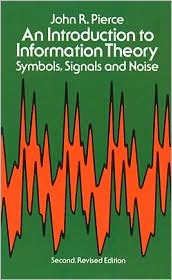

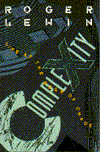


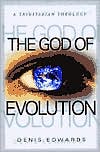

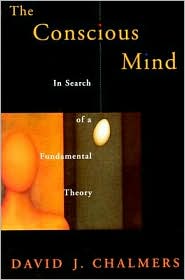
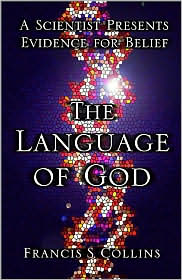


0 Comments:
Post a Comment
<< Home